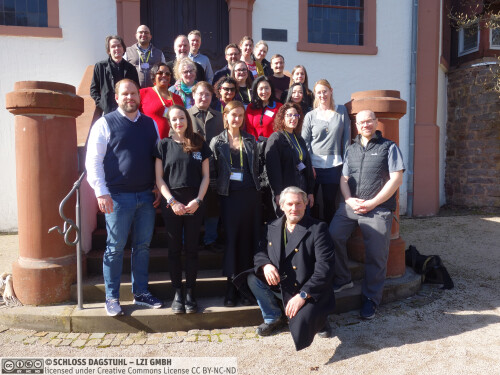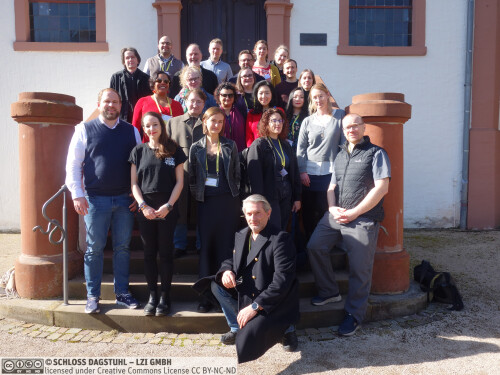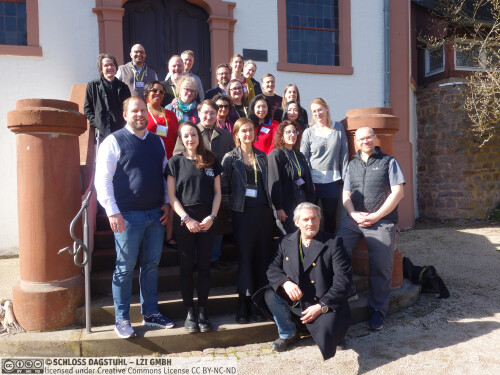Dagstuhl Perspectives Workshop 25102
The Future of Games in Society
( Mar 02 – Mar 05, 2025 )
Permalink
Organizers
- Anders Drachen (University of Southern Denmark - Odense, DK)
- Lennart Nacke (University of Waterloo - Stratford, CA)
- Johanna Pirker (LMU München, DE)
Contact
- Marsha Kleinbauer (for scientific matters)
- Jutka Gasiorowski (for administrative matters)
Shared Documents
- Dagstuhl Materials Page (Use personal credentials as created in DOOR to log in)
Digital games engage over four billion individuals globally, accounting for more than a trillion hours of play annually. This activity underpins a \$230+ billion industry and sustains a dynamic, cross-disciplinary field of academic inquiry. Games now operate as social infrastructures, educational tools, and platforms for citizen science. Yet this broadening role brings significant challenges, including concerns around physical and mental health, exploitative monetization models, and contested public narratives about gaming's value.
Gaming continues to drive technological innovation in areas such as artificial intelligence (AI), data science, and human-computer interaction (HCI). Early academic work identified the transformative potential of games to support education, foster social bonds, and enable personalized digital experiences.
However, many of these ambitions remain unrealized. Issues such as predatory monetization and problematic play have come to dominate discourse, overshadowing the field's more constructive capacities. At the same time, research leadership has increasingly shifted from academia to industry, widening the gap between the two despite overlapping expertise. The resource asymmetry limits academia’s ability to scale initiatives aimed at producing broader societal benefits. While recent policy frameworks from the EU, UK, and UN have articulated clear expectations for the societal contribution of games, the research community has yet to deliver a coordinated response.
The Dagstuhl Perspectives Workshop 25102: The Future of Games in Society, sought to address this gap by formulating strategic directions for both academic policy and industry actors. Our goal was to realign the scale and influence of gaming with emerging societal imperatives. The workshop employed a cross-disciplinary structure, organizing participants into focused working groups tasked with producing actionable strategies to inform future developments across research, practice, and policy.
The digital gaming ecosystem is approaching a pivotal moment. By convening a broad coalition of stakeholders, one can leverage the medium’s vast cultural and technological reach while confronting its pressing challenges. The related manifesto will seek to unify currently fragmented efforts into a coherent and strategic agenda that benefits players, researchers, developers, and society as a whole.
Through this initiative, we reaffirm our commitment to ensuring that digital games realize their potential as instruments of meaningful and lasting societal benefit in an increasingly digitized world. We also establish the following key priorities for the future of games in society (these cut across the nine themes of the seminar):
- Design for human flourishing: Ensuring games promote and facilitate human flourishing and designing games that promote mental health and wellbeing and create inclusive online communities and digital environments. This includes creating games that explicitly promote psychological well-being and prosocial behavior, grounded in robust research and guided by ethical design principles. It also involves implementing proactive design strategies to combat the harms of games, e.g., to reduce toxic behavior.
- Realizing the potential of educational games to transform education: Integrating games into formal curricula through evidence-based design, teacher training, and rigorous evaluation to enhance student engagement and educational outcomes.
- Establish sustainable research infrastructure at scale: Building sustainable, large-scale research infrastructure, which enables industry-academia-policymaker collaboration but also provides the evidence needed to drive good policymaking in games and beyond. Furthermore, utilize the scale of games for large-scale behavioural research. This also involves creating shared platforms, accessible data repositories, and standardized tools to support research between academic and industry actors.
- Develop standardized evaluation frameworks: Creating robust, context-sensitive metrics and assessment tools to evaluate the impact of games on learning, behavior, and social dynamics across diverse populations. There is also a need to enhance the rigour, assessment, evidence, and knowledge generated from games research and mobilize it to ensure the positive impact of games on society.
The full Dagstuhl Report summarizes the outcomes of our seminar through a series of abstracts that introduce the nine themes.
 Anders Drachen, Johanna Pirker and Lennart E. Nacke
Anders Drachen, Johanna Pirker and Lennart E. Nacke
The goal of this Dagstuhl Perspectives Workshop is to provide a roadmap for the future of games.
Today, the global digital gaming landscape, embraced by four billion individuals playing games, not only drives a $230+ billion industry but also supports a significant cross-disciplinary academic domain. With its roots embedded in diverse cultures, gaming has transcended entertainment to become social hubs, educational platforms, citizen science conduits, and a foundational part of human existence. Yet, this proliferation has highlighted a number of challenges including impacts on physical and mental wellness, contentious monetization strategies, and a dichotomy of societal narratives surrounding gaming. The rapid innovation in interactive technologies within gaming propels not just an industrial sector, but a breadth of research across computer science, including AI, data science, and Human-Computer Interaction (HCI). Despite early academic consensus on gaming's potential to revolutionize education, foster social cohesion, and personalized engagement, the promise remains largely unfulfilled. The monetization quandary and acknowledged societal challenges like game addiction shadow the many reported positive impacts of gaming.
A shift in the epicenter of gaming research from academia to the industry has further widened the chasm between them, despite a shared talent pool. The industry's resource monopoly has, in some instances, stymied the scalability of academic endeavors aimed at positive societal impact through gaming. In 2023, policy frameworks by the EU and UK, alongside the UN's future goals, underscore the anticipated societal contributions of gaming. However, a coherent response from the games research community to these policy expectations is absent.
This Dagstuhl Perspectives Workshop endeavors to bridge this gap, aiming to craft a forward-looking roadmap for both academic and industrial stakeholders in gaming. The focal point is to align gaming's colossal presence with societal expectations, informed by policy frameworks. The workshop will be anchored in a cross-disciplinary approach reflecting the games research domain, to forge actionable strategies. Through working groups, participants will delve into specific topics and build strategies aimed at guiding future work in the domain across academia, industry and policy. The aim is to provide a manifesto and roadmaps rooted in reality-based practice, propelling a constructive discourse on harnessing gaming's potential for positive societal impact.
 Anders Drachen, Lennart Nacke, and Johanna Pirker
Anders Drachen, Lennart Nacke, and Johanna Pirker
Please log in to DOOR to see more details.
- Alessandro Canossa (Royal Danish Academy - Copenhagen, DK) [dblp]
- Alena Denisova (University of York, GB) [dblp]
- Anders Drachen (University of Southern Denmark - Odense, DK) [dblp]
- Catherine Flick (University of Staffordshire - Stoke-on-Trent, GB) [dblp]
- Guo Freeman (Clemson University, US) [dblp]
- Julian Frommel (Utrecht University, NL) [dblp]
- Kathrin Gerling (KIT - Karlsruher Institut für Technologie, DE) [dblp]
- Casper Harteveld (Northeastern University - Boston, US) [dblp]
- Aleshia Hayes (University of North Texas, US)
- Linda Hirsch (University of California - Santa Cruz, US) [dblp]
- Simone Kriglstein (Masaryk University - Brno, CZ)
- Enrica Loria (Keen Software House - Prague, CZ) [dblp]
- Regan L. Mandryk (University of Victoria, CA) [dblp]
- David Melhart (University of Malta - Msida, MT) [dblp]
- Pejman Mirza-Babaei (UOIT - Oshawa, CA) [dblp]
- Lennart Nacke (University of Waterloo - Stratford, CA) [dblp]
- Johanna Pirker (LMU München, DE) [dblp]
- Katja Rogers (University of Amsterdam, NL) [dblp]
- Magy Seif El-Nasr (University of California at Santa Cruz, US) [dblp]
- Vero Vanden Abeele (KU Leuven, BE) [dblp]
- Günter Wallner (Johannes Kepler Universität Linz, AT) [dblp]
- Donghee Wohn (NJIT - Newark, US) [dblp]
- R. Michael Young (University of Utah - Salt Lake City, US) [dblp]
- Fabio Zünd (ETH Zürich, CH) [dblp]
Classification
- Artificial Intelligence
- Human-Computer Interaction
- Multimedia
Keywords
- game development
- games research
- artificial intelligence
- HCI
- player research





 Creative Commons BY 4.0
Creative Commons BY 4.0
